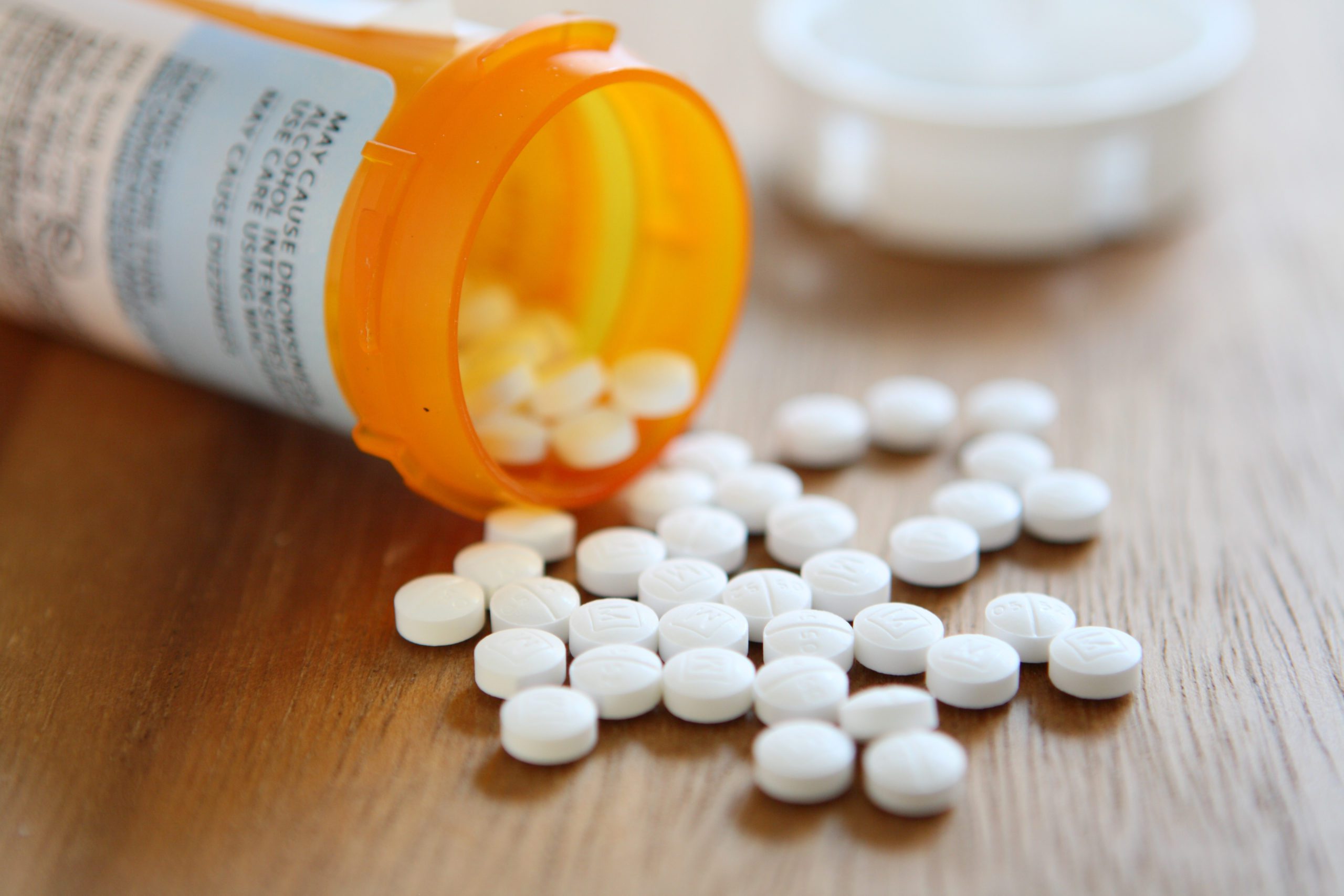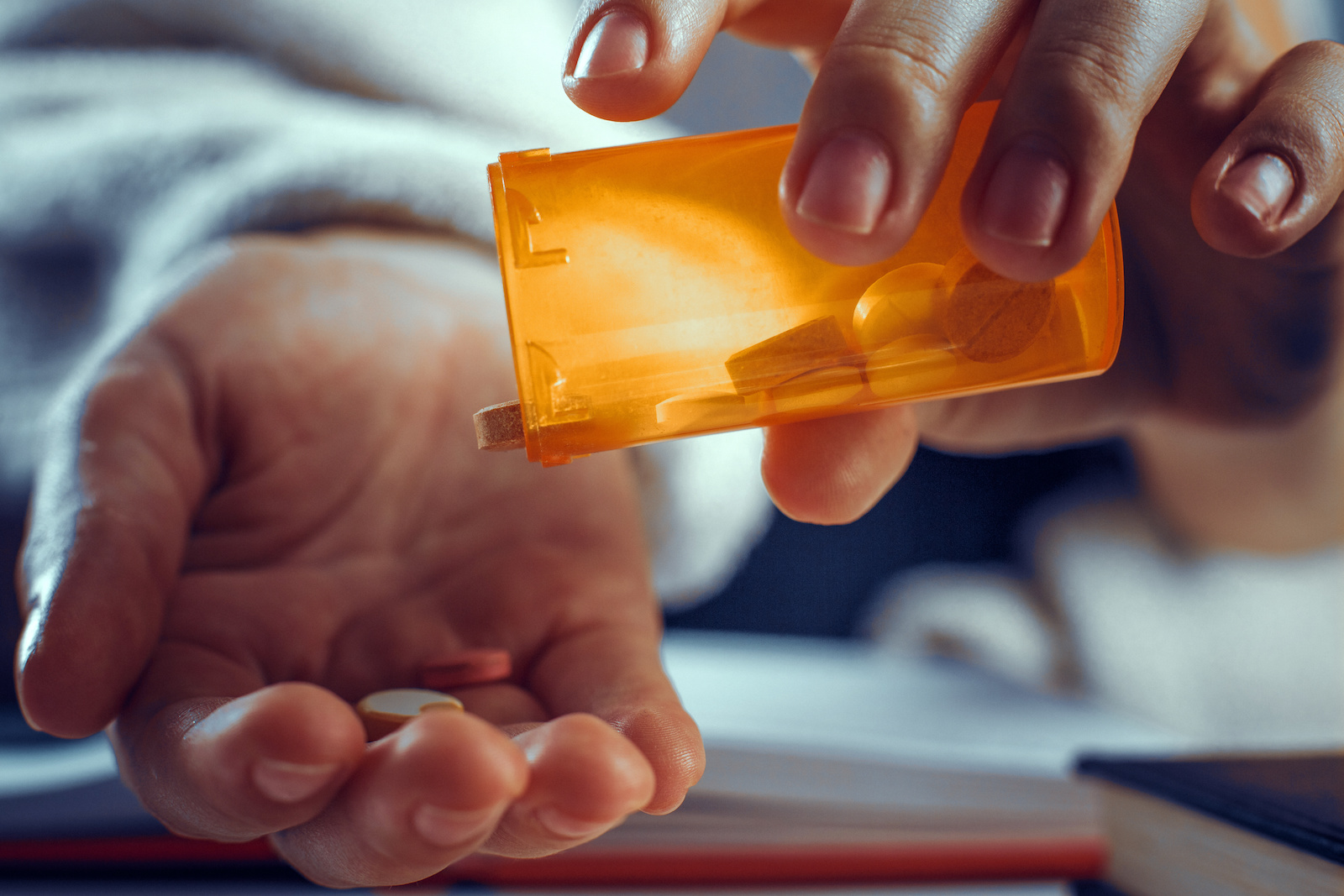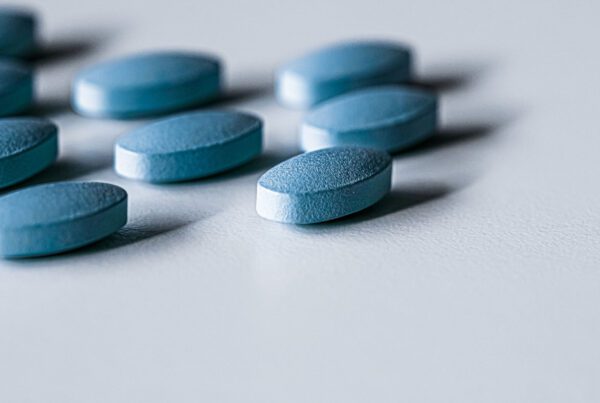
Table of Contents
Oxycodone is an important pain medication for people with severe pain, but it can also be a medication that becomes addictive, and people may also choose to take Oxycodone recreationally because it can induce a high.
Unfortunately, no matter how you start taking Oxycodone, taking it can lead to an addiction, and addiction to opioid pain medications like Oxycodone can be fatal.
The good news is that Oxycodone addiction can be overcome, and taking oxycodone responsibly can help reduce the risks of developing an addiction or any of the accompanying problems.
However, because oxycodone is a potent medication and taking it can make you take more of that medication to get the same side effects, there is a very real risk of overdosing on it. It’s even relatively easy to overdose on oxycodone when taking it for pain, rather than recreationally or because of an addiction.
Here’s what you need to know about the risk of overdose and the side effects of taking oxycodone. We’ll also talk about the signs of an overdose, when and how you need to seek help, why an accidental overdose may be a sign of addiction, and the resources that can help you overcome oxycodone addiction and live a happy, healthy life.
This guide is meant not only to help the people who are taking oxycodone themselves but also anyone around them. Managing oxycodone safely isn’t a one-person job. It should collaborate between the person taking the medication, their doctors, and their social circle.
Here’s what you need to know about oxycodone use and overdose:
Side-Effects & Risks Of Overdosing On Oxycodone
Before we discuss the side effects and risks of oxycodone use, we first need to discuss why and how it’s used.
Oxycodone is an opioid pain medication that can be prescribed for moderate to severe pain. Think, broken bones, surgery recovery, and some conditions that cause chronic pain.
Oxycodone has several different brand names, but they all have a relatively high risk of misuse and abuse.
Additionally, there are two forms of Oxycodone: the regular type taken to treat pain as needed and the extended-release form, typically used for treating more long-term or chronic types of pain that should not be taken as needed, is instead used on a maintenance dose.
Both forms of oxycodone come with a risk of overdose when you take too much, but when you take the medication and how a regular dose can turn into too much varies depending on which type of Oxycodone you’re taking and why you’re taking it.
Your doctor can give you more information about how to take your type and dose of oxycodone safely, but it’s important to make sure you stick to the instructions and also pay attention to any signs of an accidental overdose.
Remember, even taken as prescribed; there is a small risk of overdose any time you take oxycodone.
There may be additional risks associated with taking oxycodone if you have any of a relatively wide range of conditions, including but not limited to:
- Asthma
- Ulcers
- Any form of gastric or intestinal bleeding
- A previous or current brain injury
- A seizure disorder
- Liver or kidney disease
- Thyroid disease
- Lung disease
- Breathing problems
- Sleep apnea
If you have any of those conditions and are still prescribed oxycodone, it’s a good idea to talk with your doctor about managing your condition and the medication and what additional warning signs you should look out for.
Additionally, you may be at greater risk of addiction, medication misuse, and overdose if you’ve ever been diagnosed with a mental health disorder or are dealing with a period of high stress or trauma while taking the medication.
In addition to the risk of addiction or overdose, oxycodone use also comes with a range of possible side effects:
- Noisy or difficult breathing
- Sleep apnea
- Dizziness
- Fatigue
- Cold or clammy skin
- Goosebumps
- Confusion
- Unusual behavior
- Low cortisol levels
- Symptoms include:
- Nausea
- Vomiting
- Loss of appetite
- Tiredness
- Muscle weakness
- Low serotonin levels
- Symptoms include:
- Agitation
- Hallucinations
- Fever
- Shivering
- Fast heartbeat
- Twitching
- Muscle stiffness
- Loss of coordination
- Nausea
- Vomiting
- Diarrhea
- Headache
- Constipation
- Itching
- Red eyes
- Unusual blushing or flushing
Most people will only have a few symptoms on this list, but side effects can be severe and unpleasant, especially with long-term or recreational use of oxycodone.
While some side effects are normal, like headache and constipation, others, like the symptoms of low cortisol or low serotonin, may be serious, especially if they are persistent or seem to get worse the longer you take the medication.
Signs Of An Oxycodone Overdose & Why You Need To Seek Medical Care Immediately
In addition to the risks from normal use of oxycodone, it’s also important to recognize the signs and symptoms of an overdose.
Additionally, if you aren’t getting your oxycodone from a pharmacy, or if you’re getting it from an online pharmacy, you should also be aware that there is a risk of the medication being cut with another, potentially stronger, opioid medication. That can increase the risk of overdose, even if you’re taking a dose that would be safe were the medication unaltered.
Recognizing an oxycodone overdose early is essential, and getting medical attention early can help avoid some of the worst consequences of an overdose.
First, let’s talk about the symptoms of an oxycodone overdose, and then we’ll talk about why it’s important to get immediate medical attention if you suspect that you or someone near you has overdosed.
- Pinpoint pupils
- Constipation
- Nausea
- The person who has overdosed may complain of stomach cramps
- Vomiting
- Low blood pressure
- Weak pulse
- Unresponsiveness
- Coma
- Drowsiness
- Seizures
- Difficult breathing
- No Breathing
- Blue or bluish fingertips and lips
Often pinpoint pupils will be the first sign of an overdose, but the other symptoms may follow quickly and will often get more severe the longer they are allowed to continue.
If you notice these symptoms, it’s time to get immediate medical help. Call 911 or immediately take the person who has overdosed to an emergency room if you can.
If you can, it’s helpful to have the following information when you seek medical help:
- The age and weight of the person who has overdosed
- How much oxycodone they take and when
- The pill bottle (if available)
- Whether the medication was prescribed for the person who has overdosed.
It’s important to seek medical attention immediately because the sooner you can get help, the easier it will be for the medical professional to support them through the overdose, and the less likely they are to fall into a coma or develop serious complications like muscle or brain damage as a result of the overdose.
Nearly 92,000 people died of an overdose in 2020, so overdose is a serious and considerable issue in the United States. It’s more important than ever for everyone to be aware of the signs of overdose and how to help.
How Overdosing On Oxycodone Can Point To An Addiction At Hand
Overdosing is usually the worst fear of anyone taking a medication like oxycodone, regardless of whether they’re taking it with a prescription or recreationally. But it is also a common sign of an addiction.
Especially if you’ve overdosed and still want to continue taking oxycodone, that’s a strong indicator of an addiction. Because it means that you want the medication more than you’re worried about its risks.
Oxycodone, like all opioid medications, can create a chemical dependence that makes addiction much more likely. Fear of withdrawal symptoms may also motivate you to continue taking the medication. However, no matter where addiction comes from, or the motivations behind it, overdose is a sign not only of addiction but also one that has gotten out of control.
How To Get Help If Overdosing On Oxycodone: Addiction Treatment Options
If you’ve overdosed on oxycodone, it’s time, or past time, to the additional help and support you need and deserve.
Many options help people dealing with oxycodone addiction or who need to detox after an accidental overdose on their prescription medication. The trick is that opioid detox can be uncomfortable and difficult, so it’s important to ensure enough support is available while you’re going through it.
Talking with your doctor might be one of your best first steps. They can give you resources in your area and may also talk with you about more supportive options like a residential treatment center or medically supervised withdrawal.
Residential treatment centers are an especially good option if you’ve been taking oxycodone a long time, have medical complications that may make your withdrawal more difficult, if you’ve tried to overcome your oxycodone addiction before and weren’t able to, or even just if you want a little more support while you’re going through withdrawal.
At a residential treatment center, you have access to medical care and supervision, people who can help support you through the process, people who will make sure you’re well hydrated and have plenty to eat, and who can help you develop coping mechanisms to deal with the source of your addiction as well as cope with any future cravings you might have.
Ocean Recovery treatment center is here for you if you’re serious about overcoming addiction and want to figure out how to live a happier and healthier life. We can help you deal with withdrawal symptoms, overcome your addiction, and develop the skills and emotional well-being you need to live the kind of life you want!
Sources:
- Drug Enforcement Administration. Oxycodone. Accessed September 21, 2022. https://www.dea.gov/factsheets/oxycodone
- Durbin K. Oxycodone Uses, Dosage & Side Effects. Drugs.com. Published March 2, 2021. Accessed September 21, 2022. https://www.drugs.com/oxycodone.html
- National Institute on Drug Abuse. Overdose Death Rates. National Institute on Drug Abuse. Published January 20, 2022. Accessed September 21, 2022. https://nida.nih.gov/research-topics/trends-statistics/overdose-death-rates






